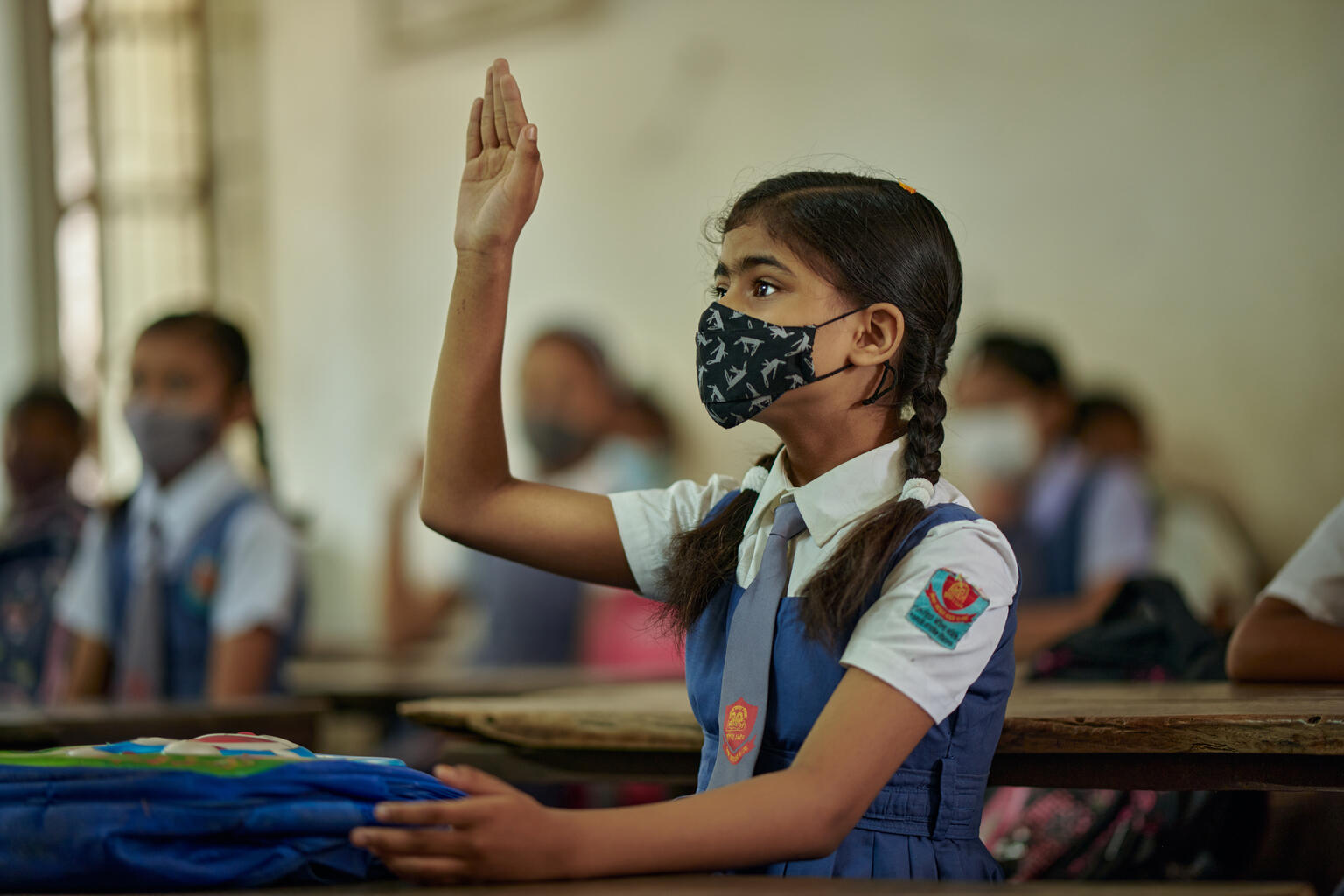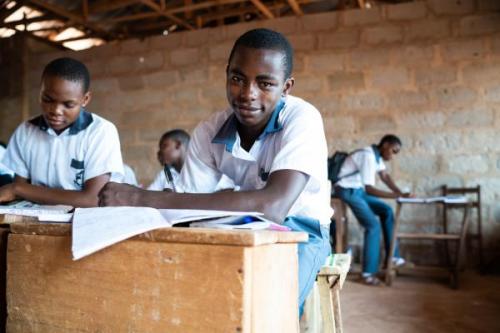
On 24 January, individuals and organisations around the world celebrate the International Day of Education, an important moment to promote inclusive and equitable quality education for all. To mark this day, End Violence is spotlighting action to keep children #SafeToLearn.
Violence affects children in and through schools, impacting 246 million children each year, and robbing them of the transformative potential of education. This violence happens in schools, around and on the way to school and in online learning environments. Half of all students aged 13 to 15 worldwide, that’s around 150 million children, have experienced peer-to-peer violence and bullying in and around schools, and 60 million girls are sexually assaulted every year on their way to school or while in school.
End Violence’s Safe To Learn initiative, a global coalition of major partners from education, child protection, violence prevention and health, is supporting collective action and investments to keep girls and boys safe wherever they learn.
Celebrating the voices of children
Children’s voices and action are the centre of End Violence’s efforts to drive change. With Safe to Learn, young people from around the world have come together to co-produce a short film, ‘Don’t Fail Us’, where they share their experiences of violence in and around school – whether bullying, discrimination, gender-based violence, or lack of a safe school environment. Through their powerful and courageous testimonies, they are demanding action from world leaders to end violence and transform education systems.
If we don’t act now, a future generation is at risk. Dear World Leaders, act now to transform education and make it safe. Don’t fail us.
Bringing together global leadership
Safe to Learn is catalysing and curating solutions from all stakeholders in children’s education and well-being. The initiative has brought together diverse expert perspectives into a holistic series of insights into the issue of violence in and through schools in the Safe to Learn Essay Collection. This collection presents a range of voices including global education leadership, government, teachers, youth and civil society, presenting a range of calls to action and solutions to end violence in and through schools.
Late last year, at the Preventing Sexual Violence in Conflict Initiative (PSVI) Conference 2022, the UK Foreign, Commonwealth and Development Office and Safe to Learn partners hosted a high-level session to discuss the ‘power of education to prevent conflict-related sexual violence’. The dialogue featured young leaders and survivors of sexual violence outlining solutions for preventing sexual violence in and through education. Leaders and policymakers at the event, including David Sengeh, Minister of Education for Sierra Leone and Alicia Herbert, FCDO Director and Special Envoy for Gender Equality, responded to the ideas and calls to action of survivors and set out their vision and approach to building education systems that put the safety and wellbeing of children front and centre.
Bringing together countries
End Violence’s Safe t is also engaging with governments around the world. 16 countries, as part of their commitment to safer learning, have endorsed the Safe to Learn Call to Action. This sets out in high-level terms what needs to happen to end violence in schools and calls on governments to strengthen legislation, policy and investment to prevent and respond to violence.
To accelerate progress towards ending violence in and through schools, Safe to Learn is supporting the dissemination of evidence, expertise and tools on what works. The Safe to Learn Regional Roundtables series provide a platform for governments to share cross-country knowledge, expertise and tools and for informed peer-to-peer dialogue to enable action that ensures all girls and boys have access to safe learning environments.
These efforts are complemented by the Together to #ENDviolence policy proposal to make schools safe, non-violent and inclusive. Endorsed by international ladders and 300+ organisations, it is calling on every government to update their education plans and make adequate investments to implement measures that make all schools safe for girls and boys and ensure that schools promote a culture of non-violence.
Learn more about our efforts to end violence in and around schools.
Image: © UNICEF/UN0527662/Sujan

